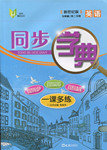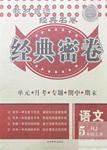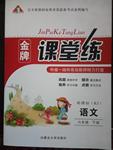题目内容
【题目】Directions: Write an English composition in 120-150 words according to the instructions given below in Chinese.
成长道路上难免遇到来自同伴的压力(peer pressure)。同伴压力可能给我们带来积极或消极的影响。请结合自己生活中的一个具体事例, 谈谈你的体会。
注意:请勿透露本人真实姓名和学校名称。
________________________________________________________________________________________________________________________________________________________________________________________________________________________________________________________________________________________________________________________________________________________________________________________________________________________________________________________________________________
【答案】There is no doubt that we are faced with peer pressure every day. Peer pressure has both advantages and disadvantages, and the key is with what kind of mentality we look at it.
If we are always envious of others famous brand clothes or shoes, we will inevitably have the desire to compare ourselves, which is bad for our personal development. On the contrary, peer pressure which is from studies will motivate us to get good grades For example, when my deskmate got a better grade in the mid-term exam than me, I made up my mind to surpass him in the model exam, As a result, I made full use of time to study hard and spared no effort to prepare for the final exam. As it turned out, I did better in the final exam than him
In word, peer pressure is a normal phenomenon, which we can't avoid. And as long as we face it positively, it will be beneficial to our personal development.
【解析】
本篇书面表达是开放性作文,要求就来自同伴的压力谈谈自己的体会。
第1步:根据提示可知,本文要求就来自同伴的压力谈谈自己的体会:成长道路上难免遇到来自同伴的压力(peer pressure)。同伴压力可能给我们带来积极或消极的影响。请结合自己生活中的一个具体事例, 谈谈你的体会,时态应为一般过去时。
第2步:根据写作要求,确定关键词(组),如; peer pressure(同龄压力),mentality(心态),surpass(超过),beneficial(有益的), motivate(激励),inevitably(不可避免地)及compare(攀比)等。
第3步:根据提示及关键词(组)进行遣词造句,注意主谓一致和时态问题。
第4步:连句成文,注意使用恰当的连词进行句子之间的衔接与过渡,书写一定要规范清晰,保持卷面的整洁美观。

 同步学典一课多练系列答案
同步学典一课多练系列答案 经典密卷系列答案
经典密卷系列答案 金牌课堂练系列答案
金牌课堂练系列答案